Thursday Feb 19, 2026
Thursday Feb 19, 2026
Wednesday, 16 March 2022 00:12 - - {{hitsCtrl.values.hits}}
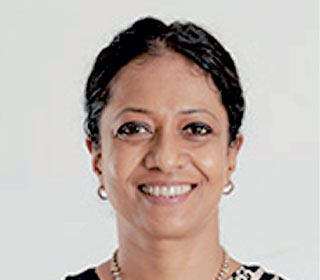
Hemas Holdings Group CEO Kasturi Chellaraja Wilson
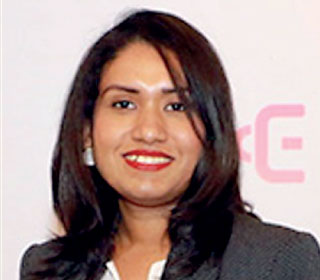
Hemas Manufacturing Manager, Innovation and Business Development Imeshi Sahabandu

Atlas Axillia Head of Corporate Relations Iroshani Nadeeka
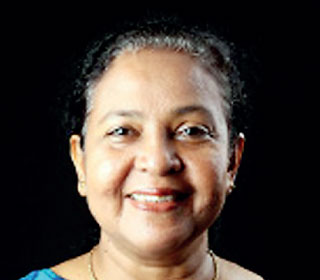
Morison General Manager – Quality Morina Rafeek
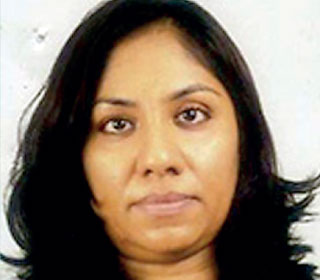
Hemas Pharmaceuticals Director Business Development and Corporate Affairs Erandika Hennedige

Hemas Hospitals Director Finance Portia Jayamaha
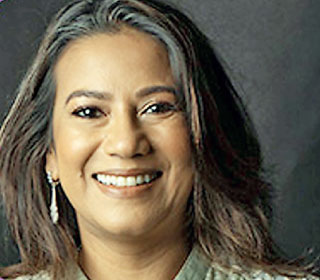
Moderator Mihirini de Zoysa
By Sandesh Jayasinghe
Hemas hosted a panel themed #BreaktheBias – It Starts with Me, which was held virtually on International Women’s Day 2022, and focused on the biases and inequalities in the Sri Lankan workplace that primarily affected women.
The challenges for women entering the workplace begin from the education system. Whilst 60% of enrolment in state higher education institutions was female and 68.5% of graduates being female, a smaller percentage of women entered the workforce. There are a multitude of factors that can account for the difference, but the general idea remains that women are less likely to enter the Sri Lankan workforce.
The challenges faced by females in the education system are related to social stigmas, perceptions and stereotypes that individuals face on a day-to-day basis. Panellist Quality Morison Ltd. General Manager Monira Rafeek noted the importance of support by close family members and actors in her journey to success and relayed the message for family members and close associates to support women in any field of education.
Entering into the workforce brings with it a new slew of challenges. Atlas Axilia Head of Corporate Relations Iroshani Nadeeka relayed her story of the expected standards for women entering marketing. Women in marketing are expected to have a certain skin tone and look to be accepted in their place of work, standards which every woman entering the field cannot comply with. This extends to other areas as well, as Monira Rafeek narrated a story of being looked down upon when entering certain managerial positions in spite of her record.
Most female employees have different expectations and standards thrust upon them based on their appearance and gender in industries. Breaking that perception is important for creating a healthy environment for female employees to work in and succeed.
When discussing the matter of employment and motherhood everyone agreed that employers have a ‘maternal bias’ when it comes to employment. Due to their invaluable roles as mother, women in the workforce are restricted from attaining certain positions. These limitations play into the social stigmas and perceptions of society forcing female employees to take a limited role in the workplace and restricting opportunities for growth. To overcome this problem, the most viable solution noted was creating a schedule to compensate for the responsibilities of employment alongside maternal responsibilities. For mothers to achieve success in work and balance their responsibilities as a parent, it was advised to set schedules and take advantage of company resources to accomplish job specifications. Further elaborating, the importance of building a support structure at the place of employment was emphasised. A support system could be vital to handle daily struggles whilst handling multiple complex responsibilities.
Hemas Hospitals Director of Finance Portia Jayamaha highlighted this unfortunate reality stating that female employees had to complete work more advanced compared to their male counterparts to be recognised. She further went on to say that that woman had to have a general shift in attitude to match the work environment for women to be considered. In general settings, female employees are forced to restrict emotions that their male counterparts are able to freely express. To handle such an imbalanced system, the panel concluded that each situation should be treated tactfully and an objective mind-set should be used to break problems in perception.
Another problem faced by women in the workplace is their position as leaders. Leaders in a general sense are meant to portray more masculine features. This becomes problematic when it comes to women leaders in work. Hemas Holding Group CEO Kasturi Chellaraja Wilson, addressing the issue noted that the perception of women at the place of employment affects how women leaders are perceived. Changing the perception of women amongst employees could help women in positions of power garner appreciation from their colleagues.
The panel also discussed ways for women to succeed in the workplace. To improve standing within a corporation a few points were made. The most important aspect was projecting oneself to establish their personality in their place of employment. Another important point was understanding their own subconscious problems and addressing them to become a better person that can work passionately and cooperate with their colleagues. Finally, lending a hand to others in need was emphasised. By helping everyone out, it is possible to create a positive culture to circumvent toxic elements of the workplace.
An interesting point of focus was relating the struggles to not be limited to women. Hemas Manufacturing Manager of Innovation and Business Development Imeshi Sahabandu expressed the importance of learning to empathise with people with preconceived notions. The preconceived notions are developed as part of the broader Sri Lankan culture around the responsibilities and duties of men and women alike. There was a discussion of the oppression felt by male employees alike due to social norms and expectations. The discussion looked at the greater idea of solving problems created due to societal stigmas and stereotypes irrelevant of gender.
As consideration, the Group CEO Kasturi Wilson noted that the Hemas organisation looked to expand paternity leave from two to three weeks by working on a family-friendly policy. In Sri Lanka there are no provisions in regard to paternity leave.